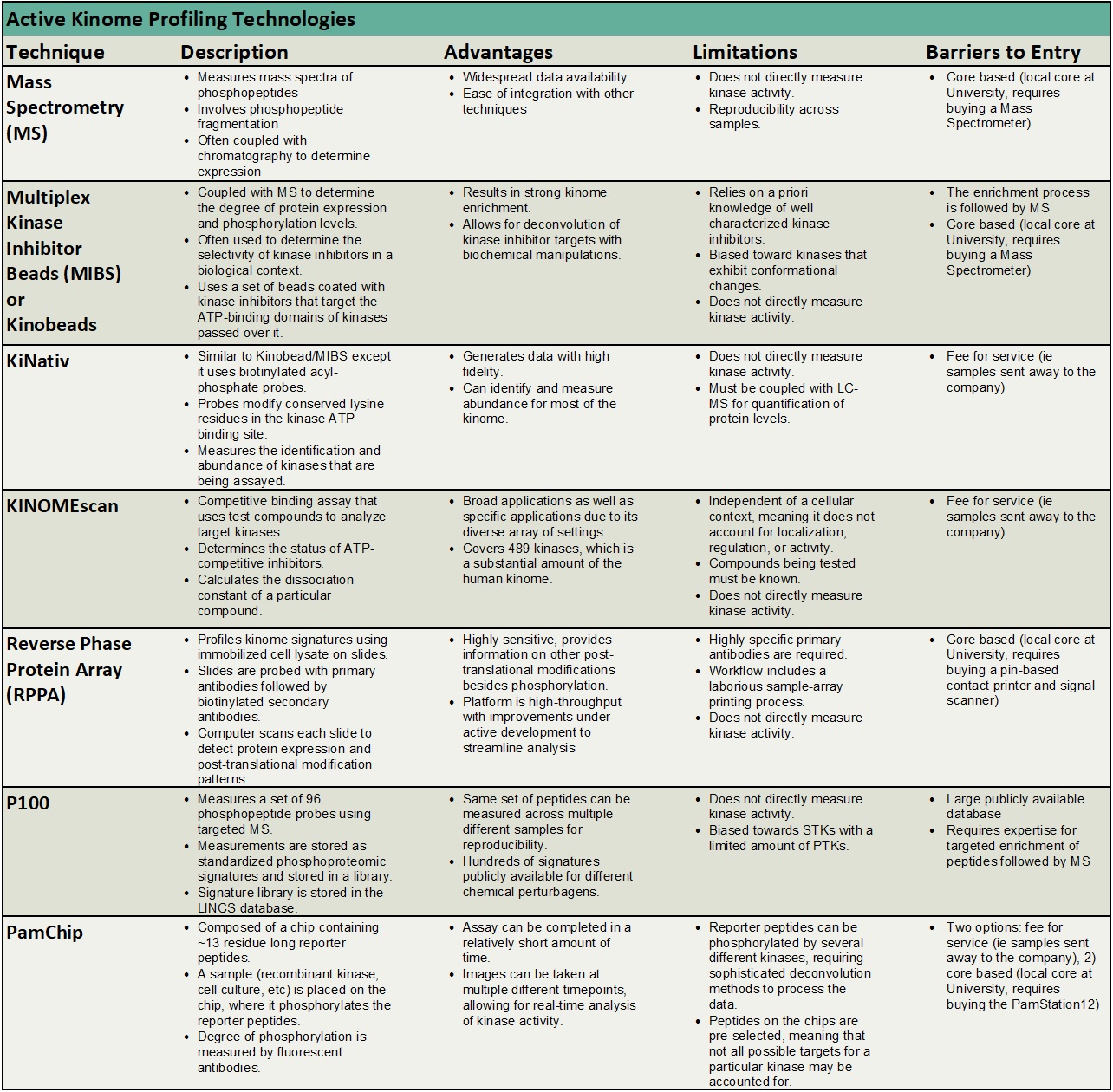Recently the University of Toledo published a review paper in ‘The current opinion in pharmacology’. In this review, the authors examine the past and current trends of kinase research and highlight the importance of studying protein kinases as networks with the aid of high-throughput active kinome technologies and computational modeling. PamGene’s multiplex kinase activity profiling technology is one of the current high-throughput profiling technologies incorporated in this review.
Some of the review’s highlights:
“Biological regulatory networks are dynamic, intertwined, and complex systems making them challenging to study. While quantitative measurements of transcripts and proteins are key to investigate the state of a biological system, they do not inform the “active” state of regulatory networks.”
“As one examines the suite of functional protein types, protein kinases rank above the others in terms of influence due to the high interactivity, ubiquitous expression, and functional relevance of these enzymes.”
“Recent advancements of high-throughput protein kinase activity profiling platforms allow for a broad assessment of protein kinase networks in complex biological systems. In conjuncation with sophisticated computational modeling techniques, these profiling platforms provide datasets that inform the active state of regulatory systems in disease models and highlight potential drug targets.”
“The development of peptide array platforms such as the PamGene Ser/Thr (STK) and phospho-tyrosine (PTK) chips permits simultaneous profiling of kinase activity for hundreds of protein kinases in complex biological samples. The PamGene platform is a well-established, highly cited, microarray technology for multiplex kinase activity profiling.”
“The PamGene platform has been successfully deployed across multiple research domains and generated actionable scientific insight in neuroscience, cancer biology, and anti-cancer drug development. The PamGene system does not require isolation or immobilization of the protein kinase for assay specificity. This permits assessment of almost any biological sample, where the net effects of all the interactions between kinases and kinase regulating molecules are reflected in the results.”
Summary of current high-throughput active kinome profiling technologies


